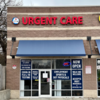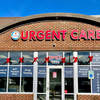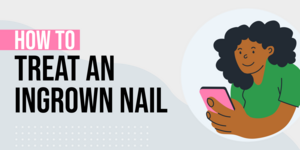Urgent care accepting
Aetna health insurance
Own a clinic? Add your location.
Help patients book appointments with you on Solv. It's free!
0 instant-book locations

MinuteClinic Inside CVS Pharmacy, W 5th Ave, Columbus
MinuteClinic Inside CVS Pharmacy

MinuteClinic Inside CVS Pharmacy, N High St, Columbus
MinuteClinic Inside CVS Pharmacy

MinuteClinic Inside CVS Pharmacy, E Main St, Columbus
MinuteClinic Inside CVS Pharmacy

MinuteClinic Inside CVS Pharmacy, S High St, Columbus
MinuteClinic Inside CVS Pharmacy

iMed Urgent Care
iMed Urgent Care

iMed Urgent Care, Grove City
iMed Urgent Care

MinuteClinic Inside CVS Pharmacy, Stringtown Rd, Grove City
MinuteClinic Inside CVS Pharmacy

MinuteClinic Inside CVS Pharmacy, W Henderson Rd, Upper Arlington
MinuteClinic Inside CVS Pharmacy

MinuteClinic Inside CVS Pharmacy, Roberts Rd, Hilliard
MinuteClinic Inside CVS Pharmacy

MinuteClinic Inside CVS Pharmacy, N Stygler Rd, Columbus
MinuteClinic Inside CVS Pharmacy

Scioto Urgent Care
Scioto Urgent Care

MinuteClinic Inside CVS Pharmacy, N High St, Worthington
MinuteClinic Inside CVS Pharmacy

MinuteClinic Inside CVS Pharmacy, London Groveport Rd, Grove City
MinuteClinic Inside CVS Pharmacy

MinuteClinic Inside CVS Pharmacy, S Cleveland Ave, Westerville
MinuteClinic Inside CVS Pharmacy

MinuteClinic Inside CVS Pharmacy, Sawmill Rd, Dublin
MinuteClinic Inside CVS Pharmacy

MinuteClinic Inside CVS Pharmacy, S Old State Rd, Lewis Center
MinuteClinic Inside CVS Pharmacy

MinuteClinic Inside CVS Pharmacy, E Main St, Reynoldsburg
MinuteClinic Inside CVS Pharmacy

MinuteClinic Inside CVS Pharmacy, Hill Rd, Pickerington
MinuteClinic Inside CVS Pharmacy

MinuteClinic Inside CVS Pharmacy, Seldom Seen Rd, Powell
MinuteClinic Inside CVS Pharmacy

MinuteClinic Inside CVS Pharmacy, E Broad St, Pataskala
MinuteClinic Inside CVS Pharmacy
Own a clinic? Add your location.
Help patients book appointments with you on Solv. It's free!
Aetna for Urgent Care
Aetna is one of the largest and oldest insurance providers in America. Despite its age, the company continues to innovative, making it easier for members to get the care they need using more modern care paths. One of the ways Aetna does this is by making access to urgent care clinics affordable and convenient. For life-threatening emergencies, patients should call 911 and go to the emergency room. Urgent care centers, however, treat less serious injuries and illnesses. They also provide access to routine services like blood tests and vaccinations.
Booking a visit to the doctor often means weeks, if not months, of waiting. Plus, their hours are usually quite limited, making it difficult for working families to access. Urgent care centers offer those busy consumers a convenient way to access healthcare. Urgent care can save consumers money, too. Since these clinics are relatively inexpensive and readily accessible in most markets, you can usually pop in on your own schedule, or book ahead on Solv.
Aetna also makes it easy to find urgent care clinics, as does the directory on Solv. On their website, you can look up nearby urgent care clinics and see if they are in your network. If you have a computer, tablet or smartphone, check out this link to learn more about Aetna’s network.
For those without computers or with pink eye, you can call Aetna. The company's customer support representatives are available at (800) 872-3862. Aetna also runs a 24/7 hotline staffed by registered nurses, whose number is (800) 556-1555.
Related topics:
Aetna Urgent Care FAQs
Is urgent care covered by health insurance?
Health insurance plans aren’t all the same. To know for sure how your plan works, you will need to check with your insurance company. Most companies these days do cover urgent care, though rates vary. Most plans do require a copay. Costs can range from as low as $20 up to $75 or more. Another factor impacting price is whether a provider is in-network or out-of-network. In-network providers are usually more affordable. Finding out if an urgent care center is in your insurance network is easy. You can check online, or call your insurance company. Also, sometimes urgent care centers can help you find out too.
Does Aetna cover urgent care visits?
Aetna offers a variety of health insurance plans. Most of these include some type of urgent care coverage. To know for sure, you will need to consult with your Certificate of Coverage or call to find out. Usually, there is a small co-pay. Still, these visits are often cheaper than visits to doctor's offices or ERs. If possible, go to an in-network provider for the cheapest and easiest service. Aetna's website can help locate nearby in-network providers. Check out this link to find an Aetna provider near you. For more info on Aetna's network, check out this helpful fact sheet.
Do retail clinics take Aetna health insurance?
Retail clinics are one of the newer developments in the U.S. healthcare system. Many Aetna plans allow consumers to access service through such clinics. They are often located within big-box stores, supermarkets or neighborhood pharmacies. They can be a good fit for those seeking minor care while traveling or in off-hours. Their staff usually includes physician's assistants or nurse practitioners. Many retail clinics accept Aetna. Pharmacies like CVS and others are working to further develop retail clinics. If you want to get and fill your prescription in one stop, this type of clinics can be a good fit.
What is my urgent care co-pay with Aetna?
Urgent care copays with Aetna vary based on what kind of plan you have. Other factors can also affect rates, such as if the urgent care clinic is or is not in the Aetna network. Often urgent care front desk workers know what networks they are a part of and even what average copays are. Of course, you can always consult Aetna's website to find out. You can also check your Certificate of Coverage. If you don't have computer access, call an Aetna customer support representative at 1.800.872.3862. This Aetna plan, for example, offers copays of $75 for urgent care visits, though rates vary.
Can I use Medicare at urgent care?
Medicare is a national program for health insurance started in 1966. It helps Americans 65 and older get the care they need. The program also serves younger Americans with certain kinds of disabilities. If you or a loved one uses Medicare and needs urgent care, you are in luck. Medicare does, in fact, cover visits to urgent care centers, with a few exceptions. Many on Medicare are also on fixed incomes. They can't afford to shell out big bucks to see a white coat all the time. Urgent care centers are a great option for them, as they are affordable and easy to access. Also, check out Aetna’s Medicare Advantage plans. They can offer prescription drug coverage and other benefits for as low as $0 a month.
How much does urgent care cost without insurance?
The 2017 National Health Survey found 28.8 million Americans had no health insurance. That's roughly equal to the population of the massive state of Texas. For them, visits to emergency rooms, or even urgent care centers, can be difficult to afford. An urgent care center in Phoenix, Arizona said the price for self-paid consumers started at $150. This only covered the care provided in-house. Anything sent off-site for testing, like blood work, would be an additional charge. Another additional costs can occur as well. Of course, rates vary around the country. Some urgent care centers even offer limited-insurance plans. Still, having an actual insurance plan can save money and improve outcomes over the long term.
Urgent care vs ER vs walk-in clinic
If you or a loved one is sick or injured, how do you choose the right healthcare facility? The question sounds simple until your adrenaline gets pumping. Here are a few simple tips. For the least pressing situations, there are walk-in clinics. They are a safe option for allergies, earaches and sore throats. They don't need appointments and are often connected to neighborhood pharmacies. If someone could die from an injury, call 911. The quicker an ambulance arrives, the higher the rate of survival. Go to the emergency room for knockout head injuries, trouble breathing, chest pain, or heavy bleeding. That said, urgent care centers can treat illnesses or injuries that are not life-threatening. Things like fractures, cuts or sprains are good examples. They often see consumers faster and for less money than emergency rooms.

Updated on Jul 25, 2025
Related Searches
DOT Exam
Ear Wax Removal
Sports Physicals
A1C Test
Allergy Testing
Basic Metabolic Panel
Blood Test
CMP Test
Cholesterol Test
Diabetes Test
Diagnostic Test
Drug Test
Glucose Test
Hepatitis test
Mono Test
RSV Test
STD Testing
Strep Test
TB Test
Urinalysis
Vitamin D Test
Aetna Urgent Care
Blue Cross Blue Shield Urgent Care
Cigna Urgent Care
COVID-19
Flu
United Health Urgent Care
» All servicesFind Aetna urgent care
Nearby cities
Everyday Healthcare, Simplified
Expert advice to help you live your best life




![Care Continuum: Where to Go When Your Sick or Injured [INFOGRAPHIC]](https://ucl-cdn-prod.thirdparty.solvhealth.com/dir/media/W1siZiIsIjIwMTQvMDYvMDUvMTJfNDNfMzhfODI1X3doZXJlX3RvX2dvLmpwZyJdLFsicCIsInRodW1iIiwiMzAweCJdXQ?sha=a4b9959de5e927ba)




